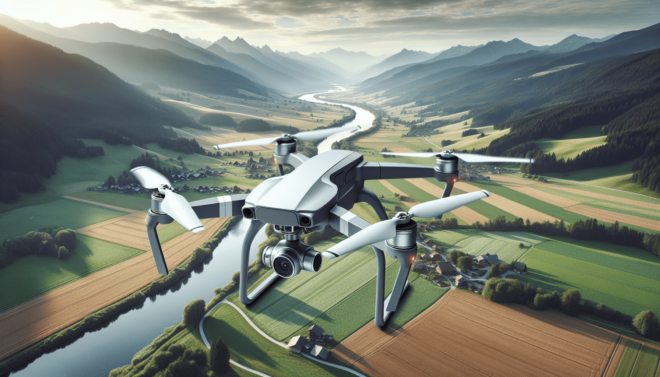Which Drones Are Affected By The Proposed Ban?
Have you been curious about which drones will be impacted by the proposed ban? Let’s break it down for you.
Understanding the Proposed Ban
Let’s first understand what the proposed ban entails. The ban is aimed at restricting the operation of certain drones due to safety and security concerns. This can include drones that are considered a threat to public safety, national security, or privacy.
Implications of the Ban
The proposed ban could have far-reaching implications for drone operators, hobbyists, and businesses alike. It may restrict where and how drones can be flown, affecting industries such as photography, videography, agriculture, and delivery services.
Drones Affected by the Ban
Now, let’s dive into the types of drones that could be affected by the proposed ban.
Consumer Drones
Consumer drones, which are typically used for recreational purposes, may be subject to the ban if they do not meet certain safety and security standards. These drones are often inexpensive and widely available, making them popular among hobbyists and enthusiasts.
Professional Drones
Professional drones, used for photography, videography, mapping, and other commercial purposes, may also be impacted by the ban. These drones are usually equipped with high-quality cameras and advanced features, making them valuable tools for various industries.
Racing Drones
Racing drones, designed for high-speed competitions, could also be affected by the ban. These drones are often modified for speed and agility, making them a potential safety risk in certain environments.
Autonomous Drones
Autonomous drones, which can operate without human intervention, may face restrictions under the proposed ban. These drones are commonly used for surveillance, aerial inspections, and delivery services, raising concerns about their potential misuse.
Military Drones
Military drones, used for reconnaissance, combat, and intelligence gathering, are likely to be prohibited under the ban. These drones are equipped with advanced weaponry and surveillance capabilities, making them a significant security risk if not properly regulated.
Compliance and Enforcement
If the proposed ban is implemented, drone operators will need to ensure compliance with the new regulations to avoid penalties and fines.
Registration Requirements
Drone operators may be required to register their drones with the appropriate authorities to ensure accountability and traceability. This could help authorities identify the owners of drones involved in safety or security incidents.
Flight Restrictions
The ban may impose restrictions on where drones can be flown, such as near airports, sensitive facilities, and crowded events. These no-fly zones are intended to protect airspace and prevent collisions with other aircraft.
Technology Upgrades
Drone manufacturers may need to update their products to meet the safety and security standards outlined in the ban. This could involve implementing new technologies such as geofencing, remote identification, and collision avoidance systems.
Enforcement Measures
Law enforcement agencies may be tasked with enforcing the ban by conducting routine checks, monitoring drone activities, and responding to violations. This could involve issuing warnings, fines, and even confiscating drones that pose a risk to public safety.
Impact on the Drone Industry
The proposed ban could have a significant impact on the drone industry as a whole, affecting manufacturers, retailers, operators, and other stakeholders.
Economic Disruption
The ban could disrupt the supply chain of drones, leading to a shortage of products and increased prices. This could have a ripple effect on businesses that rely on drones for their operations, such as aerial photography companies and drone delivery services.
Innovation Stifling
The ban may stifle innovation in the drone industry by restricting the use of advanced technologies and features. This could hamper the development of new applications for drones and limit their potential benefits to society.
Job Losses
The ban could result in job losses for drone operators, technicians, and other professionals in the industry. This could have a negative impact on the economy and livelihoods of those who depend on drones for their income.
Public Opinion and Response
The proposed ban has sparked debate and discussion among drone enthusiasts, industry experts, and policymakers. Let’s explore the various viewpoints and responses to the ban.
Support for the Ban
Some individuals and organizations support the ban as a necessary measure to ensure public safety, national security, and privacy. They believe that certain drones pose a significant risk and should be restricted to protect the public interest.
Opposition to the Ban
Others oppose the ban, arguing that it is an overreach of government authority and could hinder the legitimate use of drones for commercial and recreational purposes. They advocate for a more balanced approach that balances safety concerns with the benefits of drone technology.
Calls for Regulation
Many stakeholders are calling for comprehensive regulations that address the concerns raised by the proposed ban without stifling innovation or restricting legitimate uses of drones. They argue that a nuanced approach is needed to strike a balance between safety, security, and freedom of operation.
Public Consultation
It is essential for policymakers to engage in public consultation to gather feedback and input from stakeholders before finalizing the ban. This can help ensure that the regulations are fair, transparent, and effective in achieving their intended objectives.
Conclusion
In conclusion, the proposed ban on certain drones could have wide-ranging implications for the industry and drone operators. It is essential for stakeholders to understand the potential impact of the ban and prepare for compliance with the new regulations. By staying informed and engaged, you can help shape the future of drone technology and ensure its safe and responsible use.

